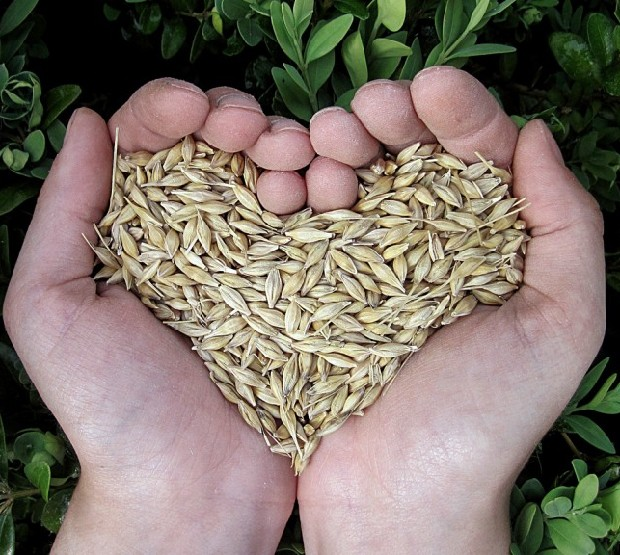Have you ever wondered the impact your diet has on our planet? Surely you have not considered it because you think that a single person can not do much about it. But ... how does it affect the way thousands of people feed?sonas? And of millions? Is it sustainable?
Many scientists and research groups have questioned it and there are already several studies on the impact that the way we eat, as well as the way we eat, has on our environment.different food groups and diets. What these popular science articles show is that plant products, such as fruits, vegetables and cereals, need less water and energy than organic products.Animal gene and above has less impact on greenhouse gas emission. For example, according to a study that was carried out in the Netherlands: to produce a 150 gram soy burger, about 160 liters of agua, and to produce a hamburger of the same size but made from beef, a minimum of 1,000 liters of water is used (1). In addition, there are other studies that end up concluding that a diet based on the consumption of plants is more sustainable thanthe omnivorous diet (2,3).
And here is our surprise when we read the article by Quim Monzó, published in La Vanguardia under the title "Smoothies are not sustainable ", ???? !!!!!!!
The writer bases the entire article on a single study of the Doctor Michael S. Tom, who along with other authors (4), concludes that a healthy diet, compared to the current of many Americans, increases energy expenditure, drinking water and produces more gas in effectvernadero.
First of all say that the journal Enviroment System Decision , where the study on the unsustainability of a vegan diet has been publishedetarian, it is in the last quartile of environmental science journals, therefore it enjoys little credibility.bility within the world of popular science . And not only this; reading the article in depth, many questions arise as to how the analysis was done. Where did you get your data on average calorie intake?s from the US? Why do you base the calculations on 1 Kcal, and not on a serving (which would be the most appropriate for the current dietary guidelines of the North American populationto)? Finally, and to finish, the discussion of the results is quite poor from a scientific point of view. The justification for the difference or opposition between the conclusions of different studies often refers to differences betweenthe cultural and food institutions, rather than the empirical evidence that we should expect from a population of this style, given the categorical tone of their hasty conclusions.
We were very surprised by the title of the opinion Quim Monzó in La Vanguardia "Smoothies are not sustainable". It has no logic !!!
So: Are juices a waste? Researchers from the USA demonstrated that the absorption of vitamin A, just the one mentioned in his article by Quim Monzó, occurs more effectively when the nutrient is obtained directly from juices and not from de its full version (5). Another study (6) concluded that the consumption of green juices , along with whole vegetables and fruits, is the key to reaching the 5-7 daily servings recommended by the latest food pyramid of the SENC (SoSpanish Society of Community Nutrition) (7). And why not, let's face it, many times our consumption of fruits and vegetables is below the recommended levels (8).
And finally, on the pulp that remains after de make these delicious juices, usually with seasonal fruits and vegetables (which is more sustainable), there are already many users who reuse it, giving it different uses: as a natural cosmetic, as an ingredient in many recipes, as a compost for our urban garden, that is ... nothing is thrown away here !. You can see some examples in the links below (9,10).
Everyone has the right to have their opinion and their principles. Although at the time of disclosing strong> one or another knowledge, especially the scientific one, is important before making sure that it has rigor and a solid base.
References:
- 012-WaterFootprintSoy.pdf" target="_blank">Ercin AE, Aldaya MM, Hoekstra AY. The water footprint of soy milk and soy burger and equivalent animal products. Value of Water Research Report Series No. 49, 2011.
- Vanham D., Mekonnen MM, Hoekstra AY. The water footprint of the EU for different diets. Ecological Indicators, 2013, 32;1-8.
- Tilman D, Clark M. Global diets link enviromenta sustainability and human health. Nature, 2014, 515:518-522.
- Tom MS, Fischbeck PS, Hendrickson CT. Energy use, blue water footprint, and greenhouse gas emissions for current food consumption patterns and dietary recommendations in the US. Environ Syst Decis, 2015, 36:92-103.
- Kolodziejczyk JK, Flatt SH, Natarajan L et al. Associations of soluble fiber, whole fruits/ vegetables, and juice with plasma beta-carotene concentrations in a free-living population of breast cancer survivors. Wom Heal, 2010, 52:731-42.
- Shenoy SS, Kazaks AG, Holt RR et al. The use of a commercial vegetable juice as a practical means to increase vegetable intake: a randomized controlled trial. Nutr J, 2015, 9:38.
- Spanish Society of Community Nutrition. 2015 Healthy Eating Pyramid.
- World Health Organization. Promotion of the consumo world of fruits and vegetables.
- What to do with the leftover pulp of the healing juices?
- ref = "https://www.ahorradoras.com/2014/09/aprovecha-los-restos-de-frutas-de-la-licuadora/" target = "_ blank"> Take advantage of the fruit leftovers from the blender.






